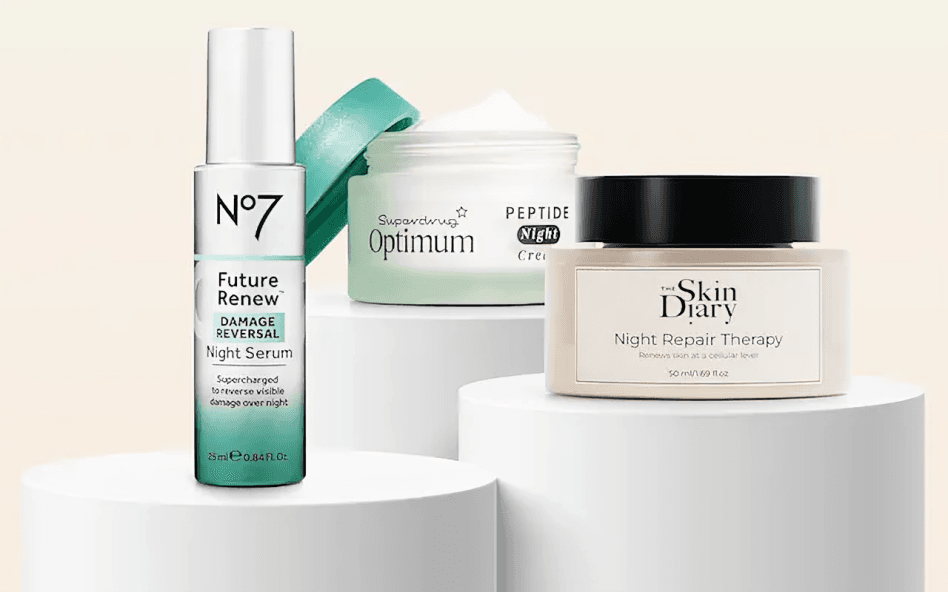
“
Understanding the best skincare routine for your skin type is essential for maintaining radiant, healthy skin and preventing long-term damage. Whether your skin is oily, dry, sensitive, or a combination, applying the right products in the correct sequence can significantly improve your skin’s appearance and health. 1
1
”
Dermatologists emphasize that understanding your skin type is the foundation of skincare. Whether oily or sensitive, identifying your skin needs helps you choose the most beneficial products. 1
Cleansing your face twice daily removes dirt, oil, and makeup that clog pores. Over-cleansing, however, can strip natural oils and disrupt the skin barrier, leading to dryness and sensitivity. 2

Using lukewarm water for cleansing is better than hot water, which can dehydrate the skin and break down its natural protective barrier, making it prone to redness and flakiness.
Dry skin types benefit from creamy or oil-based cleansers. These formulations clean without removing essential moisture, maintaining hydration and leaving the skin soft and soothed after washing. 3
Sensitive skin types should avoid products with alcohol, fragrance, or harsh exfoliants. Look for labels that say “hypoallergenic” or “dermatologist-tested” to reduce the chance of irritation. 4
Exfoliating once or twice a week helps slough off dead skin cells. Over-exfoliating can damage the skin barrier, so choosing a mild chemical exfoliant like lactic acid is often safer. 5
Toners help rebalance the skin’s pH and remove any remaining residue after cleansing. Alcohol-free toners with calming ingredients like chamomile or rose water are ideal for sensitive skin types. 6
Serums target specific skin concerns like dark spots, fine lines, or dryness. Vitamin C serums brighten the skin, while hyaluronic acid serums offer deep hydration without heaviness. 7
Sunscreen is a non-negotiable step in every skincare routine. Daily application protects against premature aging, sunburn, and skin cancer—even when it’s cloudy or you’re indoors. 8

Night creams support the skin’s natural repair process. Formulas with peptides, niacinamide, or retinol can enhance elasticity, smooth fine lines, and support skin regeneration overnight.
Using eye cream can reduce puffiness, fine lines, and dark circles. Ingredients like caffeine, hyaluronic acid, and peptides are commonly found in eye creams for a refreshed look. 9
Face masks deliver a concentrated boost of ingredients. Clay masks control oil, sheet masks hydrate, and enzyme masks gently exfoliate. Use masks 1–2 times a week, depending on your needs. 10
Layering skincare from thinnest to thickest—starting with toner, then serum, moisturizer, and sunscreen—ensures effective absorption and maximizes each product’s benefits. 11
Skin responds to consistency more than novelty. A routine maintained over weeks or months works better than constantly switching products in hopes of quicker results. 12

Diet plays a role in skin health. Hydrating foods, healthy fats, and vitamins like A, C, and E contribute to glowing skin, while too much sugar or processed food may trigger breakouts.
Avoid touching your face frequently. Hands carry bacteria and dirt that can transfer to your skin and worsen acne or trigger other skin reactions if you have sensitive skin. 13
Pillowcases and makeup brushes should be cleaned regularly. They accumulate oil, dead skin, and bacteria that may cause breakouts and dullness if they come into contact with your skin daily. 14
Drinking enough water daily keeps your skin hydrated from within. Dehydrated skin can appear dull, flaky, or tight, making external moisturizers less effective on their own. 15
Avoid using too many active ingredients together. Combining acids, retinoids, and vitamin C in one routine can irritate your skin; alternate their use or seek professional advice. 16
Consistent sleep helps your skin recover and rejuvenate. During deep sleep, the skin’s blood flow increases, collagen production boosts, and damage from UV exposure gets repaired. 17


